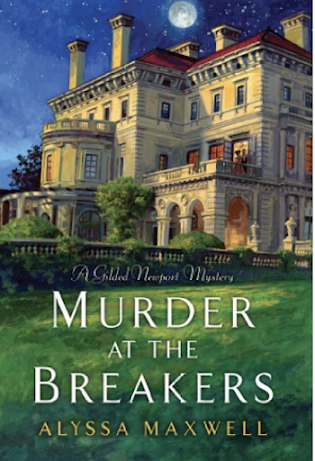Book reviews featuring history, historical fiction, and mysteries, as well as my thoughts on all things bookish.
Thursday, September 29, 2022
Why I Dislike Audiobooks (But think they are great anyway!)
Monday, September 26, 2022
Queen of Swords by Judith Tarr
Publication Date: 1997
Length: 464 pages
My Rating: ⭐⭐⭐☆☆ 3 out of 5 stars
WHY I CHOSE THIS BOOK:
This was the first Judith Tarr novel I'd run across. It looked interesting and I hadn't found another book concerning Queen Melisende of Jerusalem that was historical fiction. Also, it is part of a trilogy about Melisende, Cleopatra, and Theophano (I'd never even heard of her!) Judith Tarr has a Ph.D. in Medieval Studies, not something to be taken lightly when considering whether she has the background knowledge to write about the time period. So I was excited to try this book out. I was surprised to find out it was written in 1997 and I'd never seen it before. I settled in to read all about Melisende and her life in novel form.
I got about a third of the way through it and realized that strangely enough it wasn't really Melisende who took center stage. It was the fictional character, Richildis, and her fictional family. That would be fine in a historical fiction novel so I found it a bit odd that the book was subtitled "An Epic Tale of the Princess of the Crusades" and that the book jacket talks all about how it is a story about Melisende. It really isn't at all. She doesn't even appear all throughout the book. Nevertheless I decided to keep reading assuming the story would still cover the time period in an interesting way.
SUMMARY:
In Jerusalem in the early 1100's, Lady Richildis has arrived to try and convince her brother, Bertrand, to return with her to France and reclaim his lands and home, La Foret. Bertrand, who is firmly dedicated to his life in Jerusalem, is adamant that he will not return with her and immediately sets about creating a life for his sister in the Crusader states. Richildis is at first homesick and bewildered by the difference in culture, the heat, the style of dress, food, and all the opulence found in the Middle East. She wants to return home as quickly as possible but has vowed not to do so without her brother. Before long though she is settled in the household of Melisende as an attendant and begins to adjust and even enjoy her new life. Still dreaming of returning to France one day, she tries to accept that for now she is stuck in a foreign land under the care of others.
Melisende, wed to Fulk of Anjou, is frustrated in her role as wife and mother. She has ambitions beyond her household and through her birthright believes she has the better claim on ruling than her Frankish husband. Born into an influential family, but being female, she is unable to fully realize her autonomy as ruler although she is given more say in diplomacy than most women of her day. Richildis, witnessing the daily frustrations of the Queen, becomes a trusted confidant. She is one of the few around Melisende able to break through her rather cold and dominating personality.
Meanwhile, Bertrand has made a secret life for himself with Courtesan, Helena. Unable to fully commit to one another initially, they spend their days dancing around their true feelings. When an unexpected event occurs, they both find themselves at odds with each other and what to do about their future. Richildis also begins a love affair with a Byzantine nobleman, Michael, someone who is so radically different from her in background and breeding that it seems impossible they will ever make a life together. The two couples spend a good deal of time coming together and falling apart before finally reconciling their futures.
Of course as the novel takes place across a span of twenty years, much is happening in the Crusader states around them. Beginning in the year 1129 and ending in 1153, the characters are taken on several journeys that include the second crusade and time spent with real life figures, Eleanor of Aquitaine and King Louis of France. There are several famous battles and political events dramatized. The childhood and move into young adulthood of Melisende's sons Baldwin and Amalric are portrayed along with their fictional childhood companion, Arslan and as the novel draws to a close we are left wondering what becomes of them all.
WHAT I LIKED:
This book kind of had to grow on me. My initial disappointment that it wasn't really about Melisende made it hard to shift gears. Because my favorite kind of historical fiction centers around real people, I have to be prepared to accept fictional characters as the focus. It took a bit of further reading but I came to enjoy Richildis, Michael, Bertrand, and Helena's stories. Tarr creates compelling background, dialogue, and culture so that they seem authentic for the time. I especially liked how she chose to have Michael come from an entirely different background than the others and as their relationship progresses, he and Richilidis have to learn to accept suspicion from all sides.
The descriptions of life in Jerusalem and the battles and political drama of the day are nicely detailed although if you are looking for a book with lots of action, this is not the one to choose. It centers around the character relationships and war and fighting take a backseat to personal dramas.
WHAT I DIDN'T LIKE:
The negatives for this book for me include her depiction of Eleanor of Aquitaine and the length of the book. I felt Eleanor was the one character she presented as one dimensional and cold, conniving, and scheming. It was one of the few books in which I walked away not liking her character at all. This is odd because I have always found her to be multi layered and fascinating. Here she seems selfish and immature. Not at all how I envision her but maybe Tarr is onto something? After all, she has the Ph.D. in this area! The book is quite long and there were times it dragged a bit. I think some of the personal interactions between the couples could have been cut down and more history included. But it is just a quirk of style and I still learned a lot and was entertained.
RECOMMEND OR NOT? MOSTLY YES
I would recommend this book if you are interested in this time period and want a rich picture of Jerusalem during the Crusader states' glory days. I find precious few books on this time period as it is so I admire Tarr for tackling the subject.
Thursday, September 22, 2022
Murder At the Breakers (A Gilded Newport Mystery) by Alyssa Maxwell
Tuesday, September 20, 2022
Why I Can't Read One Book At a Time
- A Witness To Murder by Verity Bright (Cozy Mystery)
- A Study in Scarlet by Arthur Conan Doyle (Mystery)
- Falls the Shadow by Sharon Kay Penman (Historical Fiction)
- A Christmas Deliverance by Anne Perry (Victorian Mystery)
- The Royal Stuarts by Allan Massie (History)
Saturday, September 17, 2022
Queens of England by Norah Lofts
Publication Date: September 1, 1977
Length: 192 pages
My Rating: ⭐⭐⭐⭐⭐ 5 out of 5 stars
WHY I CHOSE THIS BOOK:
The world lost an amazing lady this week. At the age of 96, Queen Elizabeth II passed away and an era ended. I wanted to take a time out from cozy mysteries and historical fiction and review a book near and dear to my heart honoring all the Queens of England since, well, before there really were true queens reigning. It is sad to know that this book, published in 1977, will now have to be updated for the first time. Queen Elizabeth sat on the throne for 70 years, longer than any other British monarch and longer than any other female head of state in history. When I think of all she witnessed and influenced over her life it is truly amazing.
I chose to review this book in honor of her because it was my literal obsession as a small child and what got me hooked completely on a lifelong fascination with the British monarchy and history in general. No I haven't read it cover to cover this month but I don't need to. I almost have it memorized. That's how many times I've read and studied it over the last 40 plus years.
SUMMARY:
It details in short, 3-5 page summaries, the lives of all the female monarchs plus more obscure, earlier rulers such as Boadicea and mythical queens like Guinivere and Bertha of Kent. Giving just the basic facts, dates, and life events of each queen it nonetheless has a depth to each story that kept me coming back again and again to read about the lives of each one. There are literal stains from food and drink that are still imprinted in my original hardcover copy, evidence of my re-reading over the years but I can't bear to buy a new copy. This one is worn and special! You can still buy a new one from Amazon, but only hardcover and used ones aren't hard to find. It is worth every penny.
Each queen's story follows a similar pattern. Lofts starts with some interesting personal facts and then moves on to their early years, eventual marriage to the King or, if it is a queen in her own right such as Mary Tudor or Victoria, the how and why she came to the throne. Any romances or major tragedies are mentioned and wrapped up with a unique quote or mention of where she is buried. I always enjoyed how the short biographies convey a personal feel without spending too much time on politics or battles, that is not the theme of this book. Rather it is written in such a way that I remember even as a child, not understanding all the life events yet, I felt like I knew each one after I finished reading. Often I'd pick up this book as a research tool when delving deeper into time periods or individual biographies. Her timelines kept me focused so I could zoom out and see the larger picture, helping me to go back and study one of the subjects in more detail in another book. Being an American, these ladies were not much mentioned in school. Until I went to college and studied British history I was pretty much alone in this area of academia. We started at the Revolutionary War and even then it wasn't as if we spent time learning about Charlotte of Mecklenburg-Strelitz, wife of King George III.
WHAT I LIKED:
Some funny things come to mind when I remember reading this book. The pictures are amazing and truly unique. I recall as a child of about 10 or so not wanting to look at the picture of "Bloody Mary Tudor," as her eyes frightened me. They are dark and serious and her face is described as "grief-stricken and ill." It really freaked me out. Other pictures that stuck with me are the effigy of Berengaria of Navarre, a colorized portrait of Katherine of Aragon, and a Holbein painting of Henry VIII. There are too many to list but they are a collection I haven't found in any other book all together. I remember spending time in my room just staring at and studying each picture, looking at the clothes, hairstyles, and facial expressions of each one, feeling as if I had stepped back in time. It was my window into a world before photographs and videos.
WHAT I DIDN'T LIKE:
Nothing!
RECOMMEND: Absolutely!
I pondered this week which queen will go next in a book like this one. Camilla isn't likely, as she is not being labeled "Queen of England" and Kate Middleton is probably the next in line. The what ifs come to mind concerning Diana, if she had lived and she and Charles had not fallen out. But what I really think about is how I've been alive for 48 years and not once has the current Queen of England changed until last Friday, September 8th. We who love this part of history have taken it for granted that Queen Elizabeth would just live forever. It will take a long time to get used to any other woman with that title. King Charles III just sounds odd to my ears and seems surreal. My grandmother, who is 93 this year says she has always felt a kinship with Queen Elizabeth due to their close ages and life experiences. She was a classy lady possessing traits we sorely need more of today like stoicism and attention to duty. The world will miss her. I hope the history books treat her well, she deserves respect despite any family flaws or political imperfections, as she gave her best to God and country. May she rest in peace.




